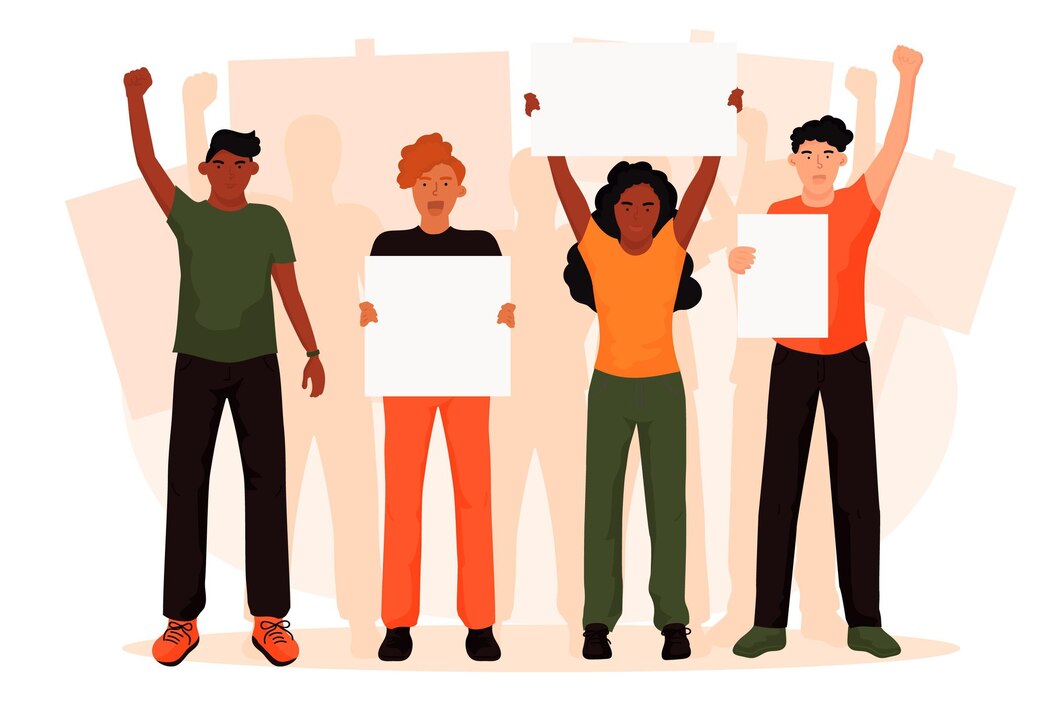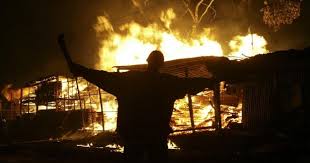By Frank Bray
n the near past, there were Gen Z protests around the country. For a moment, I thought we were all on the same page. I thought we could all see it or at least sense it.
“There was something wrong with the state of affairs in our country.”
And so, people did what their fundamental rights allow – peaceful protests.
During that time I was still in Eldoret. It was just a short while as I walked in the city of champions, following another online threat from Gen Zs that they would protest. I can’t recall the exact date, but it was just after the intense protest week that followed the passing of the Finance Bill 2024.
To my surprise, I saw an armed group of men and women, mostly older, marching down Oginga Odinga Street, loudly declaring that there would be no protests in Eldoret. It was all in the name of “keeping the peace.”
I was startled. I couldn’t help but wonder. Who sent them? Why? And if they weren’t sent, did they mean that the issues being protested were all just in our heads?
From where I stood, it was hard to ignore the satirical humor of the moment. Their zeal was almost comical. Awkwardly, they were a small confident group, seemingly proudly odd ones out, being stared at by speechless onlookers who must have felt the same as I did. Like people watching a circus passing by.
I don’t claim factual monopoly, but I assume speculation is part of the way to understanding, right?
I could somehow attribute their campaign to a few possible motivations: Maybe they genuinely believed they were keeping the peace, maybe they were truly convinced nothing is wrong with the current government, or maybe… they were simply paid to hold hands in solidarity with the state for the sake of “peace.”
It’s not wrong to need money. But deliberate sabotage of a lawful public process? That’s quite an overreach, don’t you think?
We often assume we humans are reasonable creatures but that assumption is becoming increasingly contestable. Reasonability now seems to depend on contextual factors like mass mentality, monetary incentives, and more. Apparently how hungry and desperate you are matters. Politics knows this and it capitalizes on it.
I now see why economic policies are structured to keep citizens at the edge of survival. Most people are walking a tightrope, juggling between daily needs and long-term personal progress. Some call it “just life,” but from this angle, it feels like design.
Ask yourself, why is it that the boda boda riders, the financially unstable youth, or mama mbogas who end up in these “boresha amani” anti-protest convoys when “need” arises? Why not the people who don’t need a KSh 500 incentive?
You might say, “Mwenye shibe hamjui mwenye njaa.” But then ask yourself, why are the ‘wenye njaa’ so many more than the ‘wenye shibe’? Isn’t that just a little too convenient?
Yes! Keep them desperate, and when you need them, all you have to worry about is their rate. At this point, I think all hustlers should have rate cards for political gigs. But I really look forward to the day when the term “common mwananchi” will stop being synonymous with “disposable political asset.”
If you were probably speculating that the “peace protectors” were genuinely concerned locals, your opinions might get a bit more negatively biased with the sufficing of more information on how things are unfolding. For instance, the counter-protest thing didn’t just happen in Eldoret. It was likely a testing ground.
A little while later, I saw a similar incident in Nairobi where youth were mobilized to counter protests, even carrying rungus and chanting anti-demonstration slogans. It was reported on Citizen TV and NTV (July 2024), and some of the youth openly admitted on camera that they were paid.
So now it makes sense. The system isn’t broken, it’s rigged to benefit from keeping people poor enough to sell their voices.
And we haven’t even talked about the local barazas, where a few handpicked individuals are allegedly trained to support a politician’s “public manifesto,” while real youth participation is locked out.
Thankfully, protests are not the only avenue for citizens, especially the youth, to push for change. We now have several platforms working to restore civic dignity and ensure our voices are heard. .
Siasa Place – Offers civic education, grassroots engagement, and youth advocacy.
Katiba Institute – Defends constitutional rights and promotes public interest litigation.
Mzalendo – Tracks MPs’ performance and demystifies parliamentary processes.
County Budget Forums – Remember public participation in local governance is your right and not a privilege.
Social media – If organized well, it can effectively help raise issues on civil rights and governance.
Barazas and Town Halls – Where voices can be heard genuinely through dialogue, not dismissed through scripted parades.
It’s high time we intentionally explore and utilize all these avenues, blending awareness, courage, and our collective voices.
The way I see it, leadership should be about working together, not about usury. Not about keeping people helpless enough to bend at will.
Lastly, I do not deem my perception to hold factual monopoly. But speculation is part of awareness, and awareness is the birthplace of civic action. Let’s stop being used and choose to be heard on our own terms, in our actual voices, and through every channel available to us. Let not desperation be our backdrop for action any longer.
Written by Frank Bray, a storyteller passionate about governance, dignity, and democratic responsibility in Kenya.
FACT CHECK: On July 2–4, 2024, Citizen TV and NTV aired reports showing groups of youth in Nairobi allegedly paid to disrupt or counter the Gen Z-led anti–Finance Bill protests. Similar reports from Eldoret (June–July 2024) show a pattern of “counter-mobilization” with economic incentives targeting unemployed or desperate youth.






